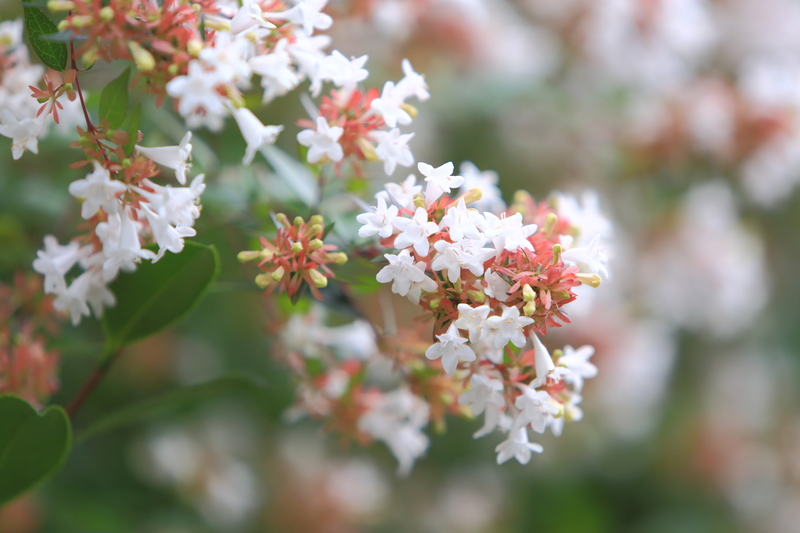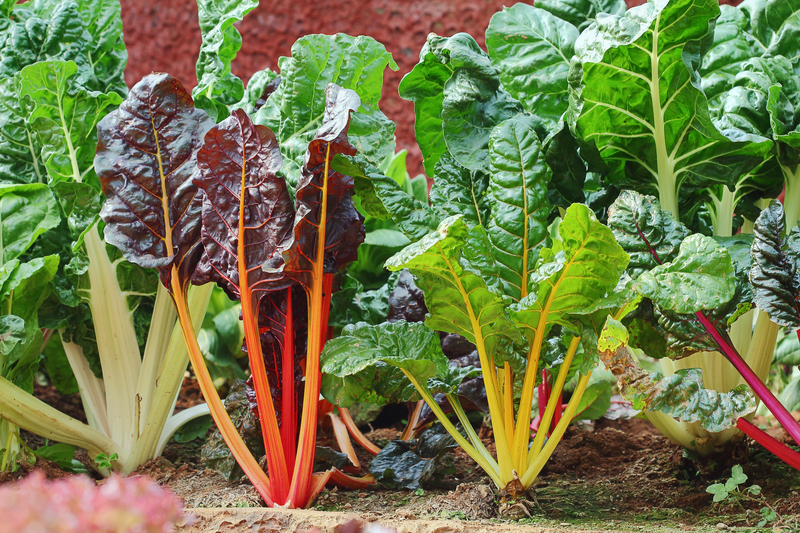Exploring the art of gardening in containers
Posted on 26/06/2025
Exploring the Art of Gardening in Containers: A Comprehensive Guide
Container gardening has blossomed into one of the most popular horticultural trends for amateurs and experts alike. Perfect for individuals with limited space, time, or mobility, gardening in containers offers a versatile and rewarding experience. From high-rise balconies to urban patios and cozy indoor corners, containers open up a world of botanical possibility! In this in-depth article, we'll explore the depth, diversity, and artistry of container gardening--helping you maximize both beauty and bounty, no matter your setting.

Why Choose Container Gardening?
Benefits of Growing in Containers
Container gardening is more than a trend--it's an adaptable approach engineered for contemporary lifestyles. Consider these outstanding advantages:- Space Efficiency: Ideal for apartments, balconies, and tiny backyards, containers fit nearly anywhere.
- Flexibility: Move your plants to optimize sun, shade, or shelter. Redesign your space on a whim!
- Disease and Pest Control: By isolating plants, containers make outbreaks easier to manage and prevent.
- Soil Control: Tailor the perfect mix for each plant's unique needs without worrying about native soil quality.
- Accessibility: Raised or elevated planters make gardening easier on the back and knees. Great for all ages and abilities!
Gardening in containers empowers you to experiment with diverse plants, colors, and arrangements, turning any space into a lush oasis.
Choosing the Perfect Container
Materials and Sizes
Container choice is the artistic foundation of your garden. Container gardening isn't limited to traditional ceramic pots--unleash your creativity! Options include:
- Terra Cotta: Classic look, breathable, but dries quickly and is breakable.
- Plastic: Light, affordable, moisture-retaining, but can fade or crack over time.
- Metal: Sleek, modern, but may heat up in direct sun and rust if not treated properly.
- Wood: Rustic and insulative; choose rot-resistant types like cedar or redwood.
- Recycled and Upcycled Containers: Repurpose buckets, barrels, baskets, or other vessels for unique, eco-friendly planters!
Size matters! Match your container to the eventual size of the plant. Too small? Roots become cramped and dry out fast. Too large? Excess soil retains too much water, leading to root rot. As a rule of thumb, most vegetables and annuals thrive in 12- to 18-inch deep containers--with deeper pots for larger or perennial plants.
Drainage: The Key to Success
No matter the material, adequate drainage is crucial. Roots will suffocate and rot if standing water collects in the bottom. Ensure containers have:
- At least one drainage hole (drill more if needed)
- A gravel or broken pottery layer if the hole size is small
- Tray or saucer to catch excess water indoors
Pro Tip: Don't block drainage holes with stones; instead, use a mesh screen to prevent soil loss while allowing water passage.
The Art of Soil and Plant Selection for Container Gardens
Selecting the Ideal Potting Mix
Never use garden soil in containers--it is too dense and harbor pests. Gardening in containers thrives with high-quality commercial potting mixes. Look for blends that include:
- Peat moss or coconut coir: Retains moisture without becoming soggy.
- Perlite or vermiculite: Boosts drainage and keeps soil light and airy.
- Compost: Supplies slow-release nutrients for healthy growth.
Tip: For specialized plants (cacti, orchids, blueberries), choose mixes tailored to their unique needs.
Best Plants for Container Gardening
The sky's the limit when it comes to plant selection for your container garden:
- Herbs: Basil, thyme, chives, mint--ideals for countertop gardeners.
- Vegetables: Tomatoes, peppers, lettuce, carrots, radishes--compact varieties work best.
- Flowers: Petunias, marigolds, geraniums, begonias, pansies--mix colors and heights for visual impact.
- Tropical plants: Canna, banana, elephant ear or coleus for a bold, exotic flair.
- Small shrubs and dwarf trees: Dwarf citrus, Japanese maples, lavender, or even miniature roses.
When planning a mixed container, follow the "thriller, filler, spiller" formula:
- Thriller: A tall, statement plant (like a dracaena or dwarf grass)
- Filler: Bushy plants or flowers to add volume (like petunias or coleus)
- Spiller: Trailing plants that drape over the rim (like sweet potato vine or ivy)
Designing Stunning Container Arrangements
Harmony and Contrast in Container Gardens
Container gardening merges horticultural know-how with artistic design. Consider these elements for show-stopping results:
- Color Coordination: Combine complementary or analogous colors for a unified look. Play with monochromatic themes for sophistication.
- Texture: Pair broad-leaved plants with fine, feathery foliage for visual intrigue.
- Shape and Proportion: Vary heights and shapes for drama. Odd numbers (3, 5, 7 plants) look most natural.
- Seasonal Interest: Incorporate evergreens or switch annuals each season for year-round beauty.
- Personal Touch: Add decorative stones, garden art, or fairy lights for whimsy and charm.
Container Placement and Grouping
Think beyond single plant pots! Clusters of containers--of varying heights, shapes, and textures--create depth and dimension in small garden spaces. Here's how to maximize impact:
- Group odd numbers of pots for a dynamic look.
- Layer by setting larger containers in back and smaller ones up front.
- Use wheeled plant caddies for easy rearrangement and cleaning.
- Echo colors or plant types throughout for a cohesive feel.
Container Garden Care: Tips for Thriving Plants
Watering Wisdom for Containers
In container gardening, water management is vital. Soil in pots dries out quickly compared to garden beds. Keep these watering strategies in mind:
- Check Daily: Especially in hot weather. Poke your finger in the soil--water when the top inch feels dry.
- Water Deeply: Moisten all the way to the bottom. Let excess drain out the bottom holes.
- Morning Watering: Reduces evaporation and disease risk.
- Self-watering containers are a fantastic option for busy gardeners!
Fertilizing and Maintenance
The limited soil in containers means nutrients can deplete quickly. Keep your plants healthy by:
- Mixing slow-release fertilizer into the potting mix before planting.
- Applying water-soluble or liquid fertilizers every 2-4 weeks during the growing season.
- Removing spent blooms (deadheading) and trimming leggy growth to encourage more flowers and lush foliage.
- Refreshing the top few inches of potting mix each season, or fully repotting perennials every couple of years.
Dealing with Pests and Diseases
Although container gardens have fewer issues, pests like aphids, spider mites, or fungal diseases can still occur. Practice vigilant monitoring and use organic controls (insecticidal soap, neem oil) as needed.
Creative Ideas and Themes for Container Gardens
Herb Gardens in Small Spaces
Window boxes or kitchen counter planters brimming with culinary herbs are both beautiful and practical. Mix Mediterranean herbs (oregano, rosemary, thyme) for a classic chef's selection, or try a "tea garden" with mint, chamomile, and lemon balm!
Edible Container Gardening
Raise lettuce, radishes, peppers, or dwarf tomatoes in large tubs or buckets. Strawberries and climbing beans work beautifully in hanging baskets or vertical wall planters. Container-grown vegetables are perfect for both city dwellers and busy families.
Seasonal and Themed Arrangements
- Autumn Glory: Combine ornamental peppers, mums, and kale for a fiery fall display.
- Winter Magic: Fill containers with evergreen boughs, holly, and pinecones for festive cheer.
- Butterfly or pollinator gardens: Select nectar-rich flowers like lantana, zinnia, and verbena.
- Zen retreat: Use pebbles, bamboo, and sculptural succulents for a relaxing, minimalist look.
Overcoming Challenges in Container Gardening
Drought and Heat Resilience
In hot climates, choose heat-tolerant and drought-resistant species like succulents, agapanthus, or ornamental grasses. Mulch the soil surface with bark or pebbles to retain moisture and prevent overheating.
Winter Protection Tips
Freeze-prone? Move delicate containers indoors or group them in sheltered corners. Wrap pots in bubble wrap or burlap, and raise them off cold ground with bricks or pot feet.
Addressing Limited Sunlight
Shady balconies or rooms can flourish with ferns, caladiums, impatiens, and begonias. Reflective pots and light-colored surfaces amplify available light for plant health.
Container Gardening for Urban and Indoor Spaces
Urban Jungle: Containers for Balconies and Rooftops
City living inspires inventive container growing--imagine lush privacy screens, vertical garden towers, or tiny fruit orchards in pots. Wind exposure? Choose sturdy plants or shield your garden with trellises and decorative screens.
Indoor Container Gardening
Indoor pots allow you to cultivate houseplants, herbs, or even dwarf fruit trees year-round. Select plants adapted to indoor light conditions (snake plant, pothos, or peace lily), and be mindful of over- or underwatering in a climate-controlled environment.

Sustainable and Eco-Friendly Container Gardening
- Reuse containers and materials: Upcycle household items into creative planters.
- Water-saving techniques: Use self-watering pots or collect rainwater for irrigation.
- Organic gardening: Choose organic soil mixes, fertilizers, and treat pests using natural methods.
Conclusion: Unlocking the Artistic Freedom of Container Gardening
Whether you're a city dweller, suburban homesteader, or rural garden enthusiast, container gardening invites you to rethink the possibilities of your space. By understanding plant needs, mastering soil and watering, and unleashing your creativity, you can transform any corner into a lush sanctuary.
Exploring the art of gardening in containers is more than a practical solution--it's a journey in beauty, experimentation, and self-expression. Begin with a single pot or create a multi-level spectacle. With each season, let your container gardening adventure evolve--discover new plants, designs, and techniques. Happy gardening!
Frequently Asked Questions About Container Gardening
- How often should I water my container plants? Aim to water when the top inch of soil is dry. Hot or windy conditions may require daily watering.
- Can I use any container for gardening? Yes, provided it has drainage holes! Upcycle creatively, but ensure your plants don't sit in soggy soil.
- What are some easy plants for beginners? Try basil, mint, petunias, succulents, or lettuce for easy, rewarding results.
- Do I need special soil for containers? Yes, use lightweight, nutrient-rich commercial potting mix--never dense garden soil.
- Can I grow fruit trees in containers? Absolutely! Choose dwarf varieties and provide large, sturdy pots with excellent drainage.
Ready to explore the art of container gardening? Gather a few pots, your favorite seeds or seedlings, and let your creativity flourish!



